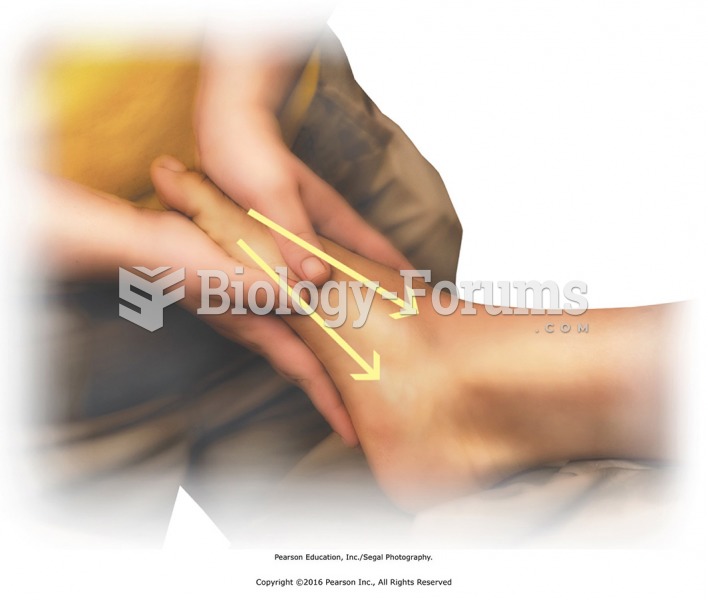|
|
|
Your skin wrinkles if you stay in the bathtub a long time because the outermost layer of skin (which consists of dead keratin) swells when it absorbs water. It is tightly attached to the skin below it, so it compensates for the increased area by wrinkling. This happens to the hands and feet because they have the thickest layer of dead keratin cells.
ACTH levels are normally highest in the early morning (between 6 and 8 A.M.) and lowest in the evening (between 6 and 11 P.M.). Therefore, a doctor who suspects abnormal levels looks for low ACTH in the morning and high ACTH in the evening.
When blood is exposed to air, it clots. Heparin allows the blood to come in direct contact with air without clotting.
Amphetamine poisoning can cause intravascular coagulation, circulatory collapse, rhabdomyolysis, ischemic colitis, acute psychosis, hyperthermia, respiratory distress syndrome, and pericarditis.
Malaria mortality rates are falling. Increased malaria prevention and control measures have greatly improved these rates. Since 2000, malaria mortality rates have fallen globally by 60% among all age groups, and by 65% among children under age 5.
 Effleurage to transition to lower leg-distal to proximal. Apply effleurage with moderate pressure to ...
Effleurage to transition to lower leg-distal to proximal. Apply effleurage with moderate pressure to ...
 Direct pressure to deep rotator muscles using the elbow. Use the elbow tip to apply pressure moving ...
Direct pressure to deep rotator muscles using the elbow. Use the elbow tip to apply pressure moving ...





